Investing
The Strangest Superstitions People Believe in Every State
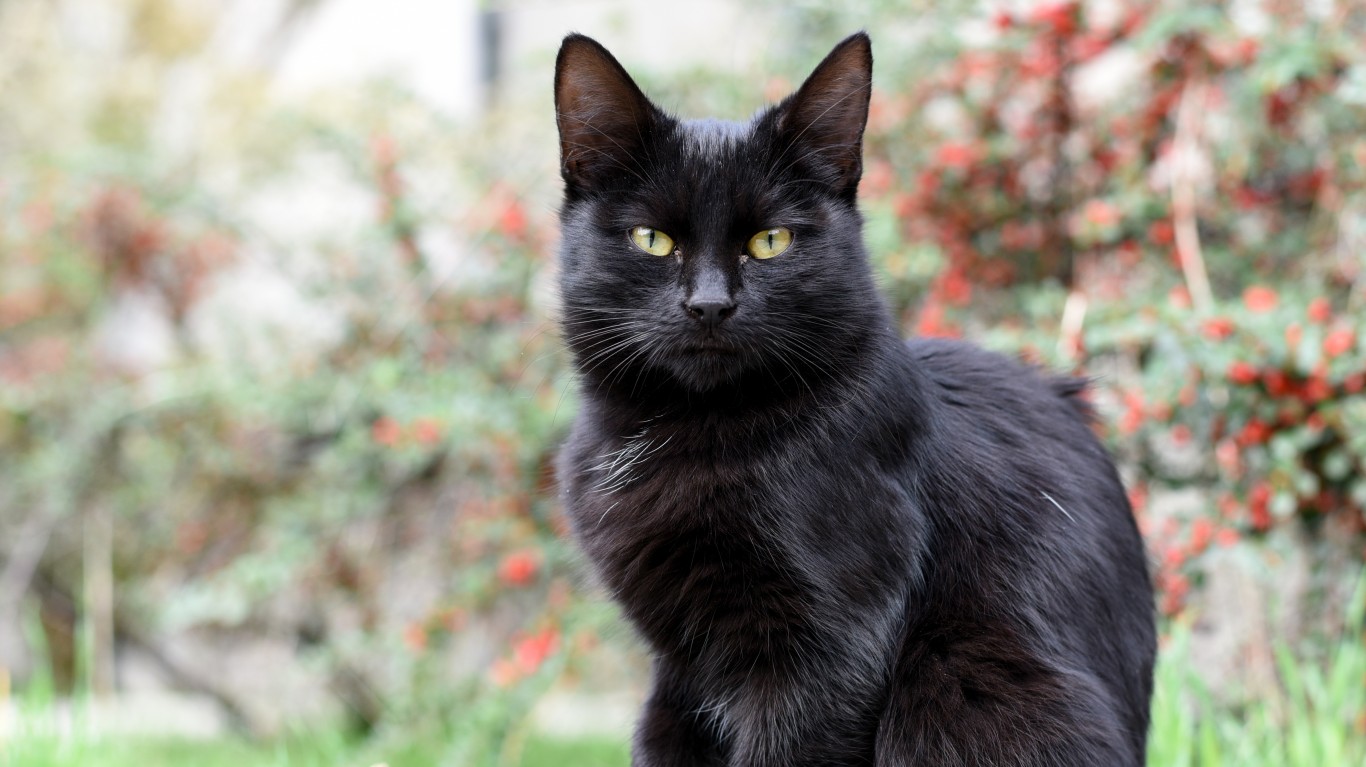
Published:

You might consider yourself a very rational person, but then something as simple as a calendar date or a number makes you feel differently about things. You might think twice about boarding a plane on Friday the 13th or taking flight number 13. Some buildings don’t even have a 13th floor. There’s a fancy word for fear of the number 13 — triskaidekaphobia — but that’s just another way of describing a superstition.
24/7 Tempo has compiled a list of superstitions that still prevail in each state or region. We drew on material from academic journals, books on folklore, digital libraries, and media sources to develop our list.
Superstition has been defined as “a belief or practice resulting from ignorance, fear of the unknown, trust in magic or chance, or a false conception of causation.” That sounds like a harsh description for something many of us innocently engage in from time to time. Superstitions typically take form as omens of good and bad luck. They are thought to influence coming events, despite any demonstrable correlation.
While we may know we have no control over airline safety, winning the lottery, or whether our favorite team wins, it doesn’t prevent us from performing some ritual to affect an outcome. There are even superstitions that we hope will bring us good fortune. These are the weirdest superstitions people believe will bring wealth.
Even in 21st century America superstitions that may be thousands of years old persist. You’re probably familiar with many of them, from black cats to broken mirrors, but there are many more out there that you may have never heard of. Some superstitions are associated with an unfortunate event that befell a home or a particular place. Here are the creepiest haunted houses in every state.
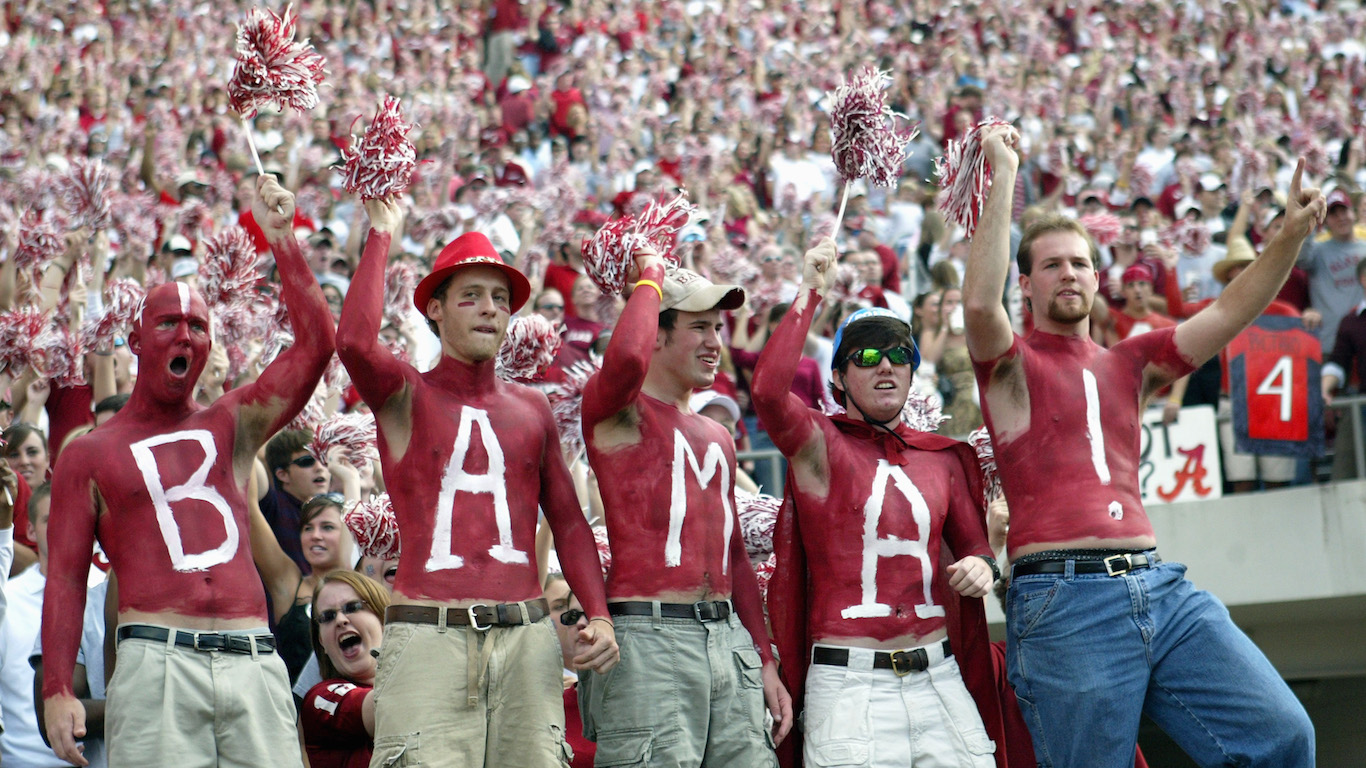
Football fans at the University of Alabama don’t sing “Rammer Jammer Yellow Hammer” until a Crimson Tide victory is certain. Also, before every Alabama game, coach Nick Saban receives a lucky penny from his daughter, Kristen.
[in-text-ad]

As the state with the longest coastline it’s not surprising that superstitions related to the sea are common in Alaska. Do not bring bananas or flowers aboard a fishing boat as both will bring misfortune. Sailors don’t bring bananas because hundreds of years ago, the fruit was known to house deadly spiders. Flowers also aren’t allowed onboard boats because funeral wreaths are made of them.

Hikers disappear in the Superstition Mountains, according to George Johnston, president emeritus of the Superstition Mountain Museum. Johnston claims four to five hikers die in the mountain range every year. Some believe the disappearance of the hikers might be tied to the legend of the Lost Dutchman’s gold, a fortune said to be buried somewhere in the mountain range.
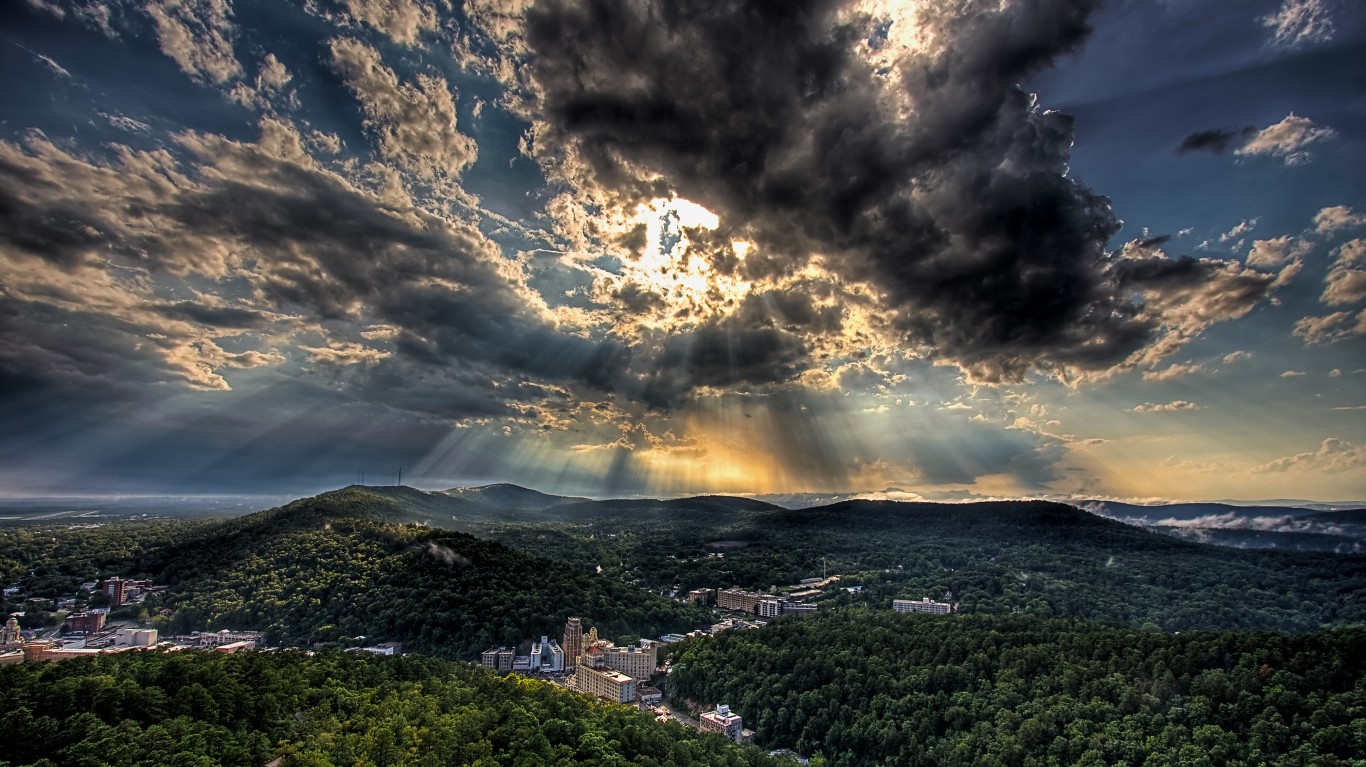
People claim a demon lives in Hell’s Half Acre, which is near Hot Springs, and that animals and birds will not cross or fly near the area. Local people believed the area was an extinct volcano, while others thought it was an ancient Native American quarry.

Most superstitions go back to colonial times. This one, however, is a recent one. In California, if you make a wish as two Volkswagen Beetles are crossing an intersection, your wish will come true.

Many superstitions involve human interactions with animals, and their consequences. In Colorado, if you kill a toad, your cow will produce bloody milk.

Grooming also figures into American superstitions. To comb one’s hair after dark is a sign of sickness in Connecticut.

Delaware
The Nanticoke people native to Delaware believed the seventh-born child held magic powers, understood the use of medicines, and could cast spells on people and animals.
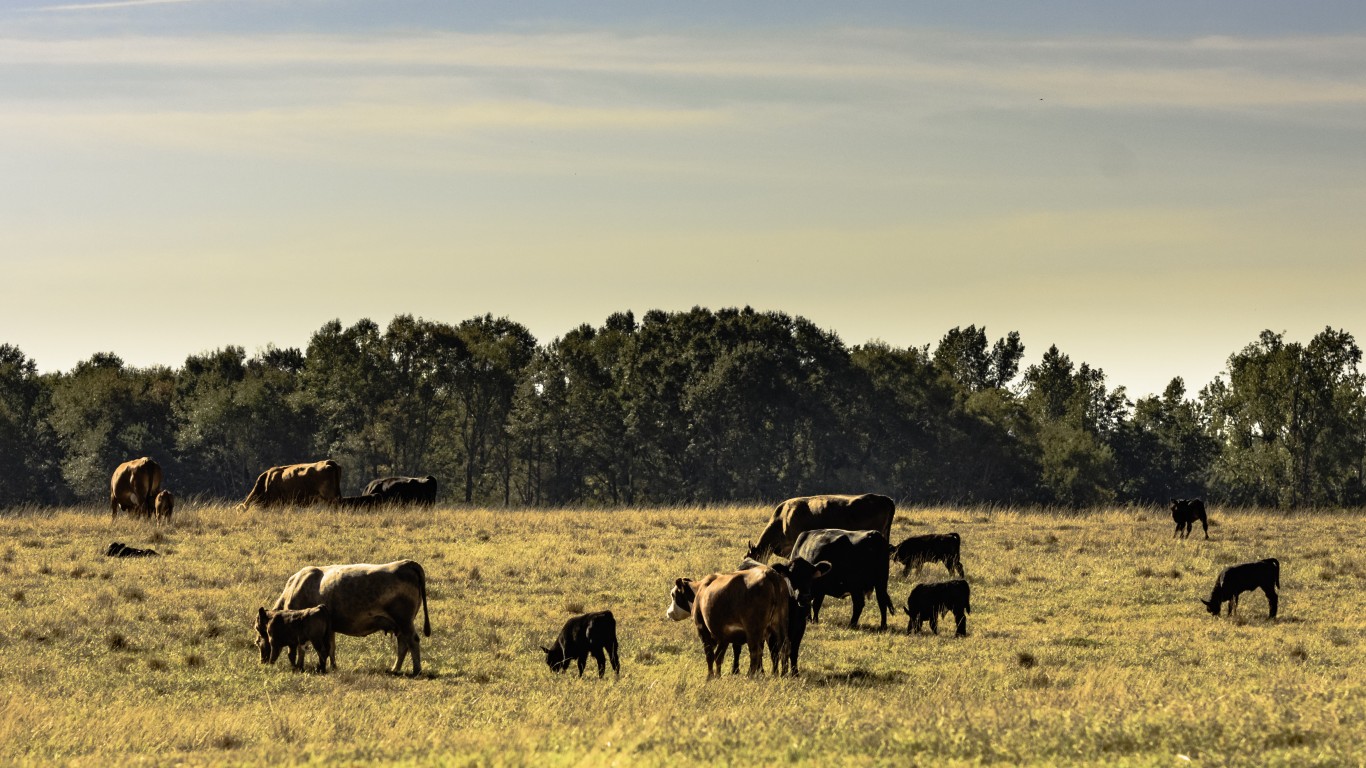
Given Florida’s location and climate, it’s not surprising that there are superstitions about hurricanes there. When a cow carries its tail upright, it’s a sign that a hurricane is coming.
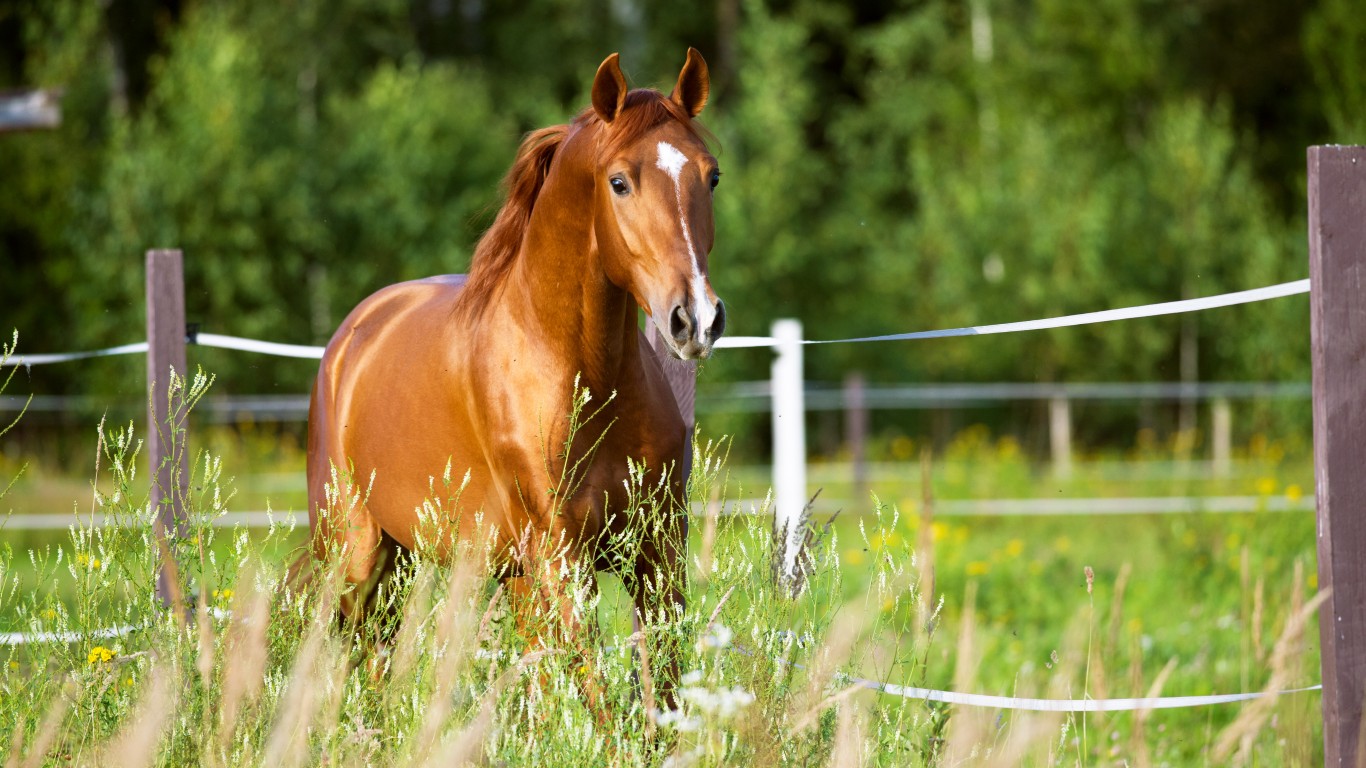
If a horse’s mane is tangled, it’s a sign that a witch has been riding it. Little knots seen in a mane are called “witches’ stirrups.”

Hawaii
Don’t take a rock or sand from the beach, or a lava rock from a volcano, and away from Hawaii. You’ll be cursed by the fire goddess Pele, who plays a role in many superstitions in the island state. You may also be cursed by the authorities as removing natural minerals from Hawaii is a crime.

Spirit Lake got its name from a Native American legend about a young man and woman from rival tribes who fell in love. Because they were unable to wed, they tied their wrists together in a symbolic wedding ceremony and leaped off a cliff into the lake. People claim to see their spirits wafting across the lake in a canoe as sorrowful sounds fill the air.
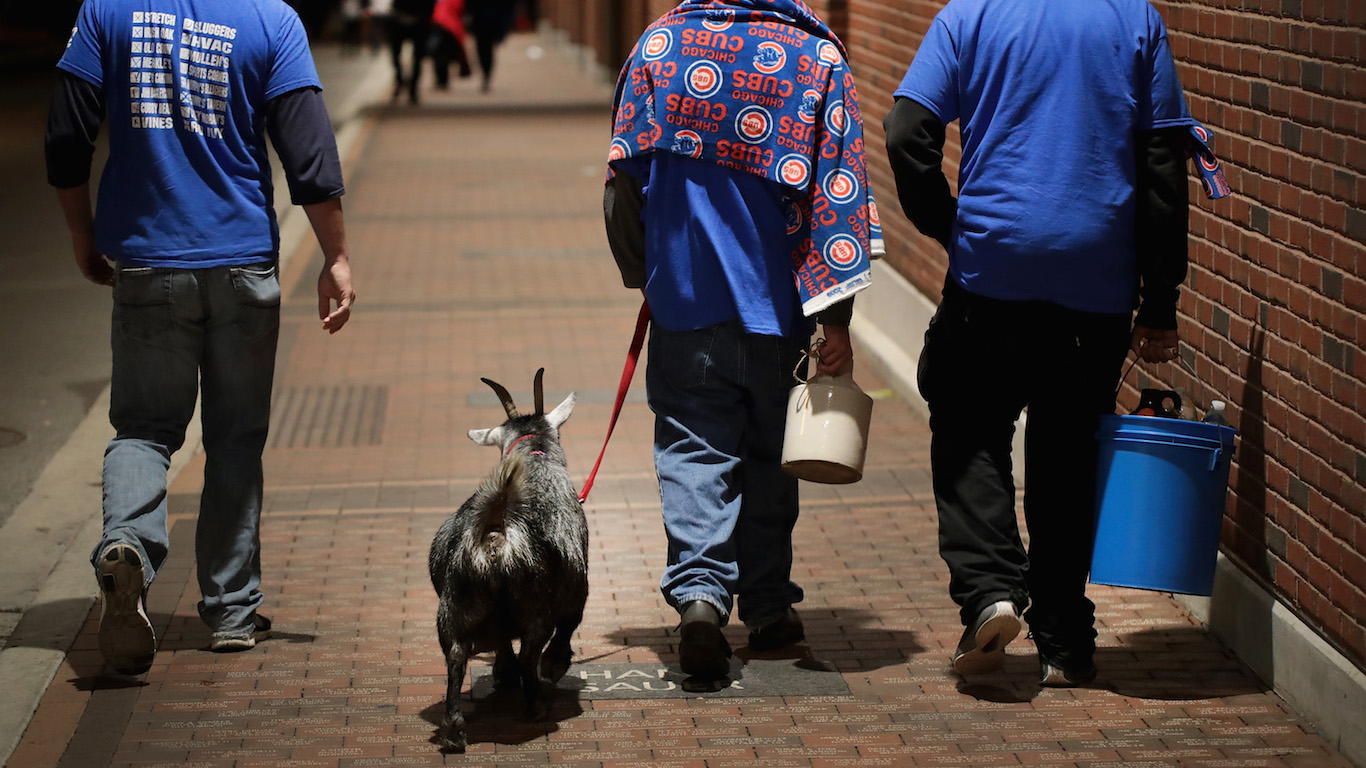
The “Billy Goat Curse” was placed on the Chicago Cubs by Billy Sianis after the Cubs prevented him from bringing a goat to Wrigley Field during the 1945 World Series. Sianis vowed the Cubs would never win a World Series as long as the goat was not allowed in. The curse held until 2016, when the Cubs won the World Series.

In the Midwest, women used to plant squash and cucumber at the time of the third zodiac sign, Gemini, to assure a bountiful crop.
People believe the Black Angel statue at Oakland Cemetery in Iowa City changed from its previous golden bronze color because of a woman’s infidelity, a reminder to people of the consequences of their actions. Among the superstitions connected with the statue is any girl who is kissed near it at night will die within six months.

Kansas
This superstition connects matrimony and food: Boil an egg, fill the space of the yolk with salt, go to bed, and whomever you dream about will be your future marriage partner. There have been superstitions associated with weddings throughout history all around the world. Who hasn’t heard of “Something old, something new, something borrowed and something blue?”

Kentucky
Superstitions are part of sports lore, and horse racing is no exception. At the Kentucky Derby, it’s bad luck for a horse owner to say to his trainer, “See you in the winner’s circle.” You never want to predict your victory.

Louisiana
Louisiana has many superstitions and legends, some of which have to do with money. To keep money flowing your way, never eat both ends of a loaf of bread — throw at least one away.
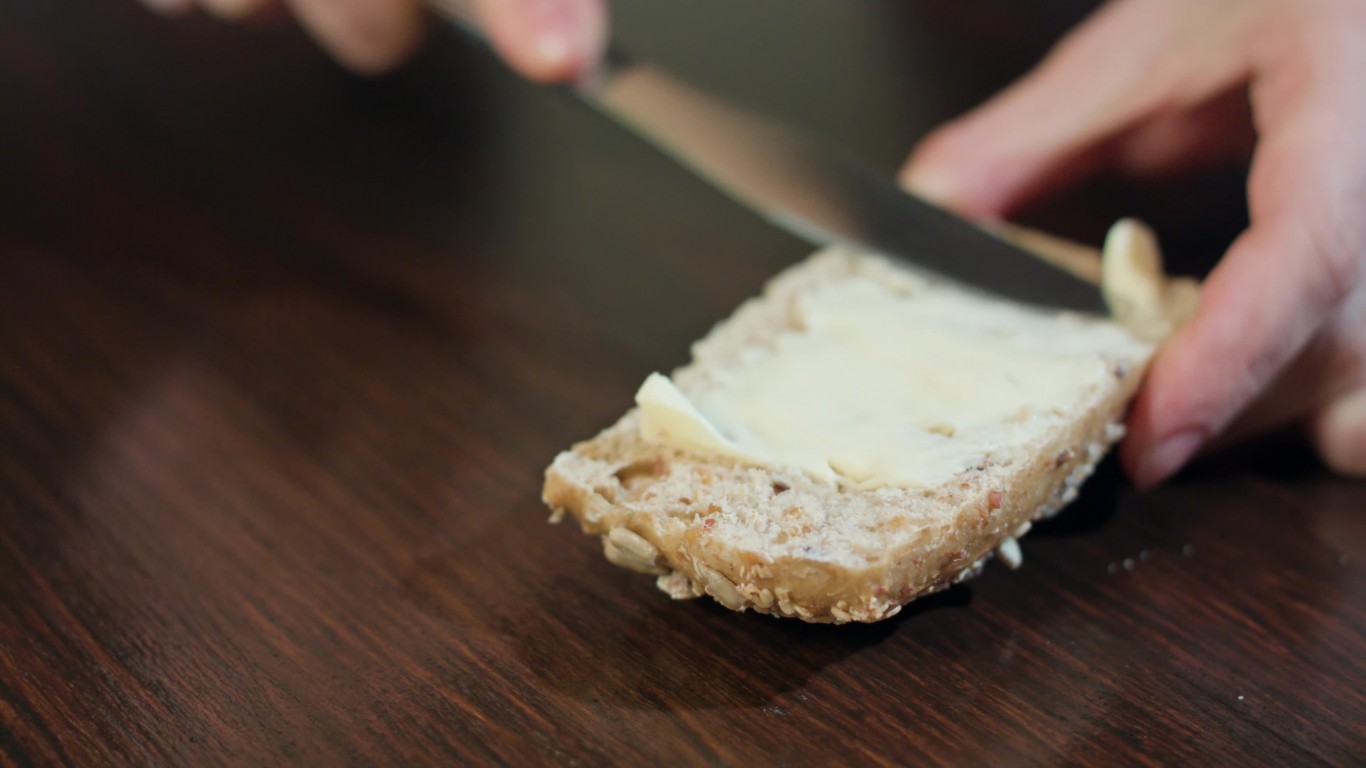
Maine
Dropping a buttered slice of bread with the butter side down brings bad luck. And it’s no longer sanitary to eat.

Maryland
In Maryland, don’t walk backward downstairs because you will curse your parents. But if you walk downstairs backward, carry a mirror and count each step. By the 13th step — if you haven’t fallen — you will see the reflection of your future husband.
Massachusetts
In Massachusetts, a door painted bright red keeps evil forces and financial trouble at bay. If life were that simple, everybody would have a red door.
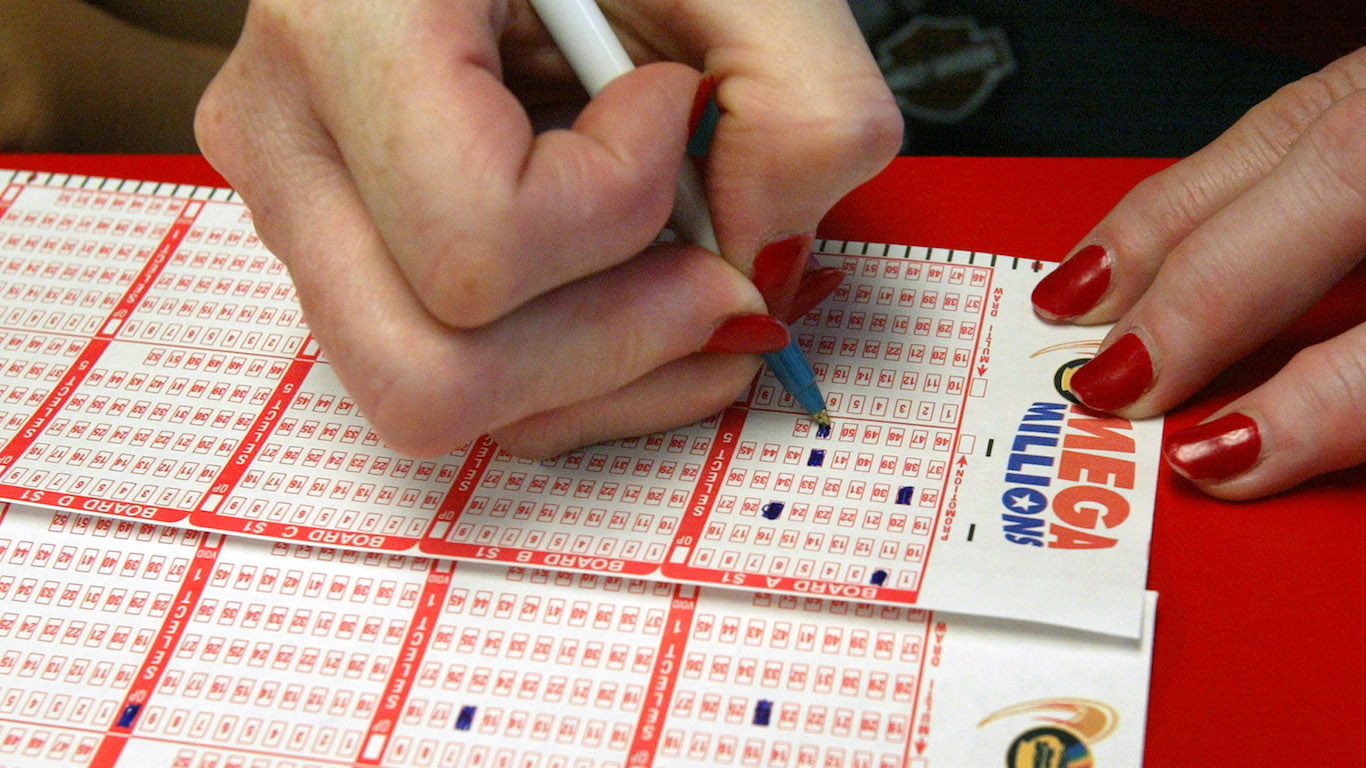
Michigan
Some Michiganders believe Friday the 13th is lucky. According to the Michigan Lottery, players have won a total of more than $176 million in jackpots on Friday the 13th. The latest winner won $9 million in 2017.

Minnesota
In Minnesota, rats are the canary in the mineshaft and miners believe that killing them is bad luck. Miners don’t kill rats because they are believed to be sensitive to vibrations, which may indicate a tunnel collapse. If the rats start heading for the surface, miners should do so as well.
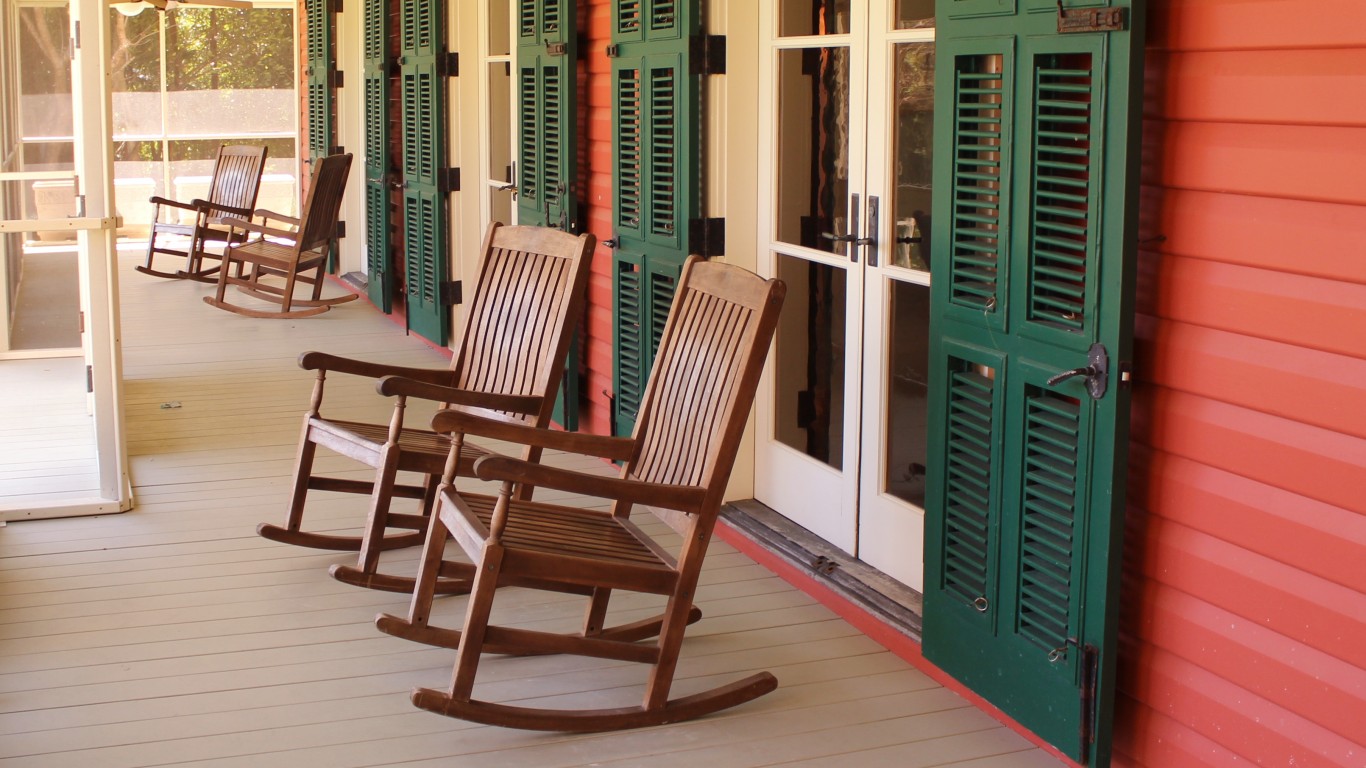
Mississippi
If you let an empty rocking chair keep rocking, evil spirits will come. Another superstition about empty rocking chairs says you’ll get sick within a year if you get up from a rocking chair and let it keep moving.

Missouri
The Ozarks have provided American culture with numerous superstitions, such as thieves always look into their cup before they drink.

Montana
In Montana, it’s lucky to get up early on New Year’s Day, but if you wash clothes that day, you will wash away a friend.

Nebraska
In Nebraska, superstition holds that when you walk on a new sidewalk for the first time, you should spit on it and make a wish.

Nevada
At Pyramid Lake in Nevada people claim to hear the crying of babies. The legend stems from a story associated with the Paiute people, who were said to drown premature or malformed babies there.
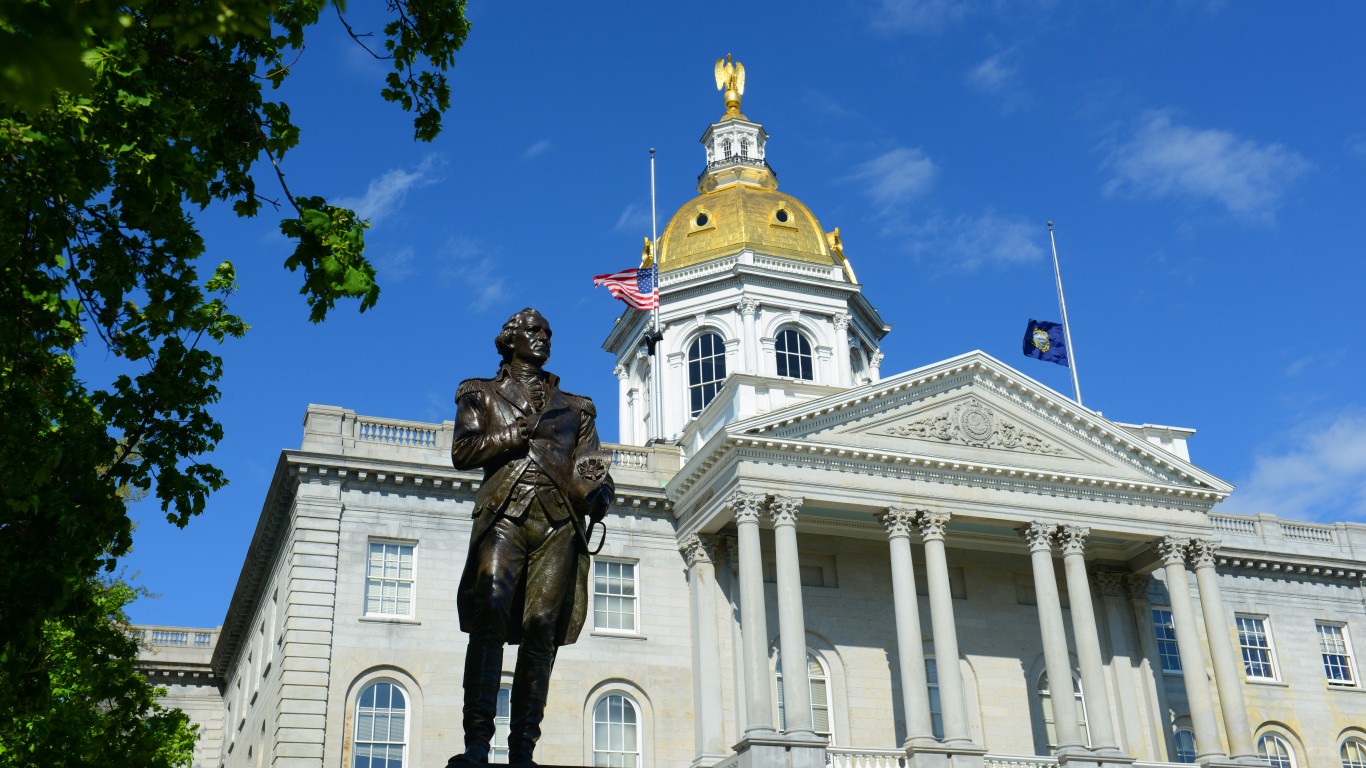
New Hampshire
The number 13 has been associated with bad luck for thousands of years. Because of a superstitious state legislator, there are no seats labeled 13 in the New Hampshire statehouse since 1958.
New Jersey
Eating lentil soup on New Year’s Eve is good luck for the new year. This superstition has origins in Italian culture. New Jersey has one of the highest percentages of people of Italian heritage in the United States.
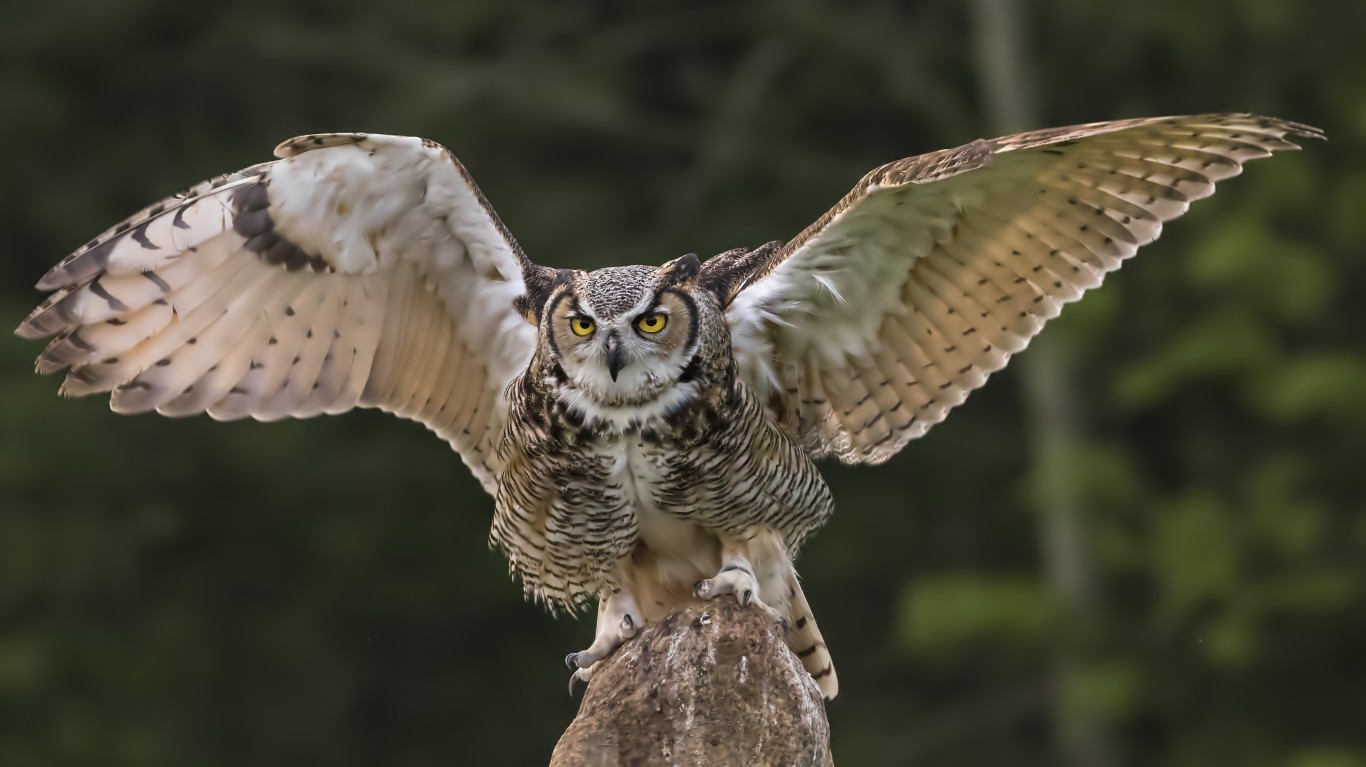
New Mexico
Owls have been regarded as bad omens in many cultures and places. Witches supposedly take the form of owls in New Mexico, and the hoot of an owl is said to be a bad omen.
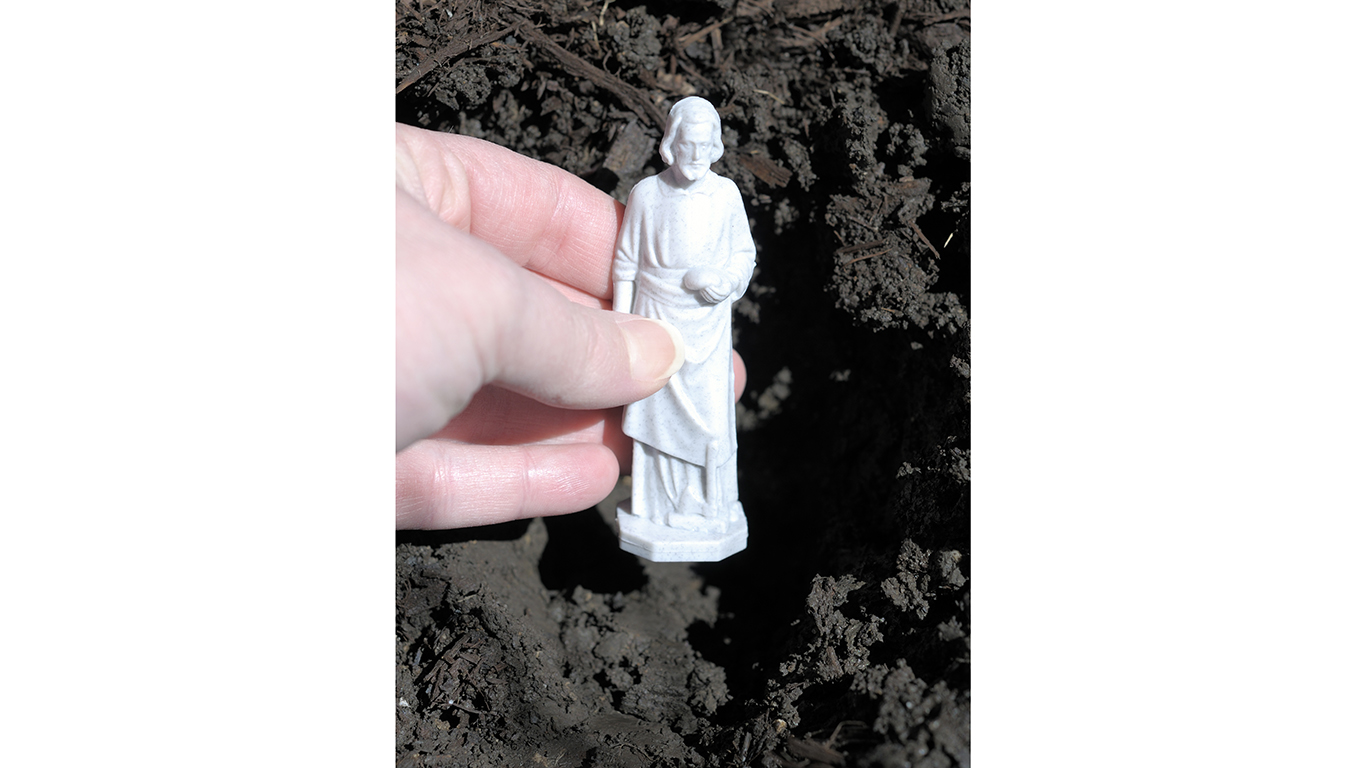
New York
If Catholics want to get the best offer on their houses in New York, they should bury a statue of St. Joseph in their front yard. That’s because he’s the patron saint of real estate. Sellers should pray to St. Joseph until the house is sold, then unearth the statue and bring it to their new home.

North Carolina
Car trouble is likely to ensue after driving across or under Helen’s Bridge, located at Beaucatcher Mountain in Asheville. People attribute these odd occurrences to the story of a young mother who hanged herself from the bridge after her daughter died in a fire. The mother’s spirit is said to be seeking her daughter at the site.

North Dakota
In North Dakota, if you kill a snake, cut its head off and bury it far from its body to keep it from coming back together. You should also know that the state has only one poisonous snake, the prairie rattlesnake, so generally it’s better to live and let live.

Ohio
One of the more benign superstitions on this list involves Ohio State University. Couples walking hand in hand at the Oval, a gathering place at the center of the university, can guarantee they’ll be together forever, but only if the chimes from Orton Tower are pealing, and no one crosses their path.
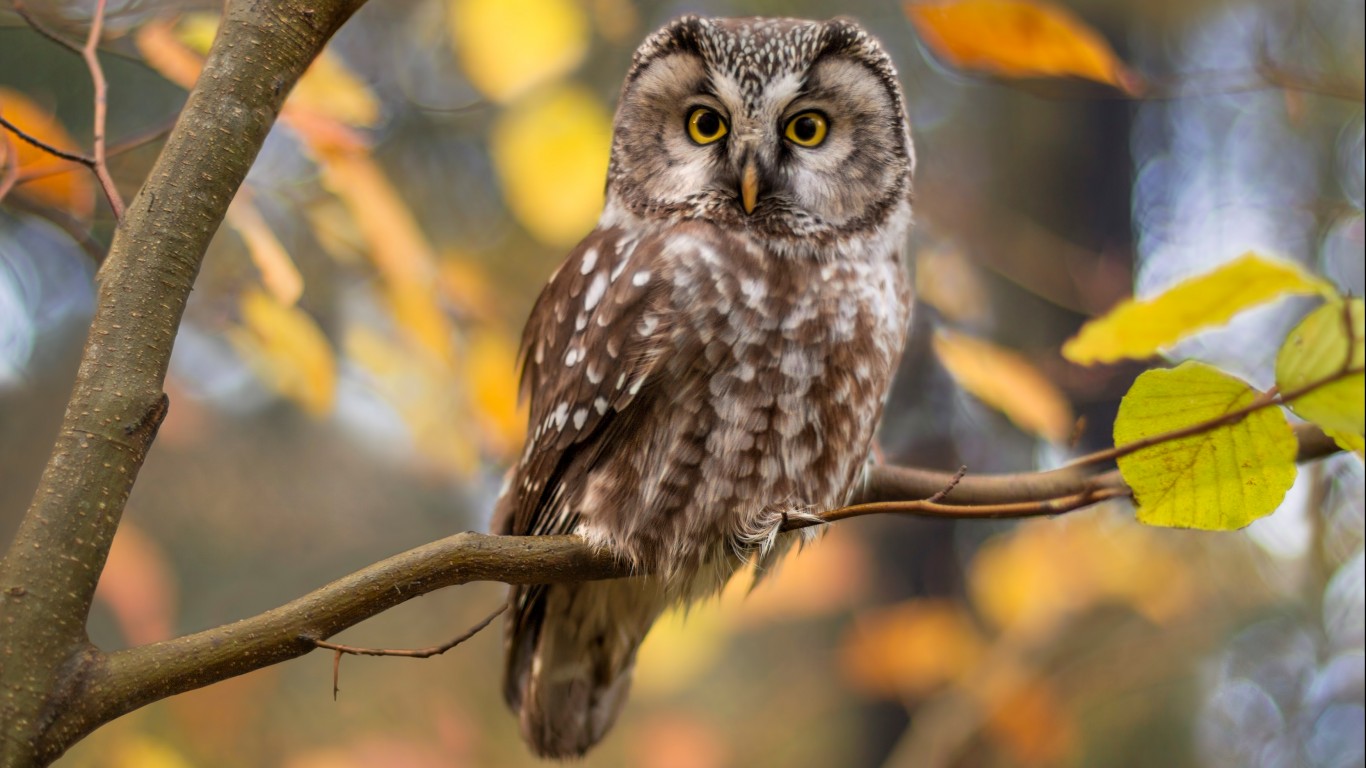
Oklahoma
The Cherokee believe that the owl is a messenger and is capable of delivering bad news or bad luck.

Oregon
If you left your house in Oregon and had to return for any reason, it was considered bad luck. To negate this bad luck, you had to sit on your bed for a few minutes.
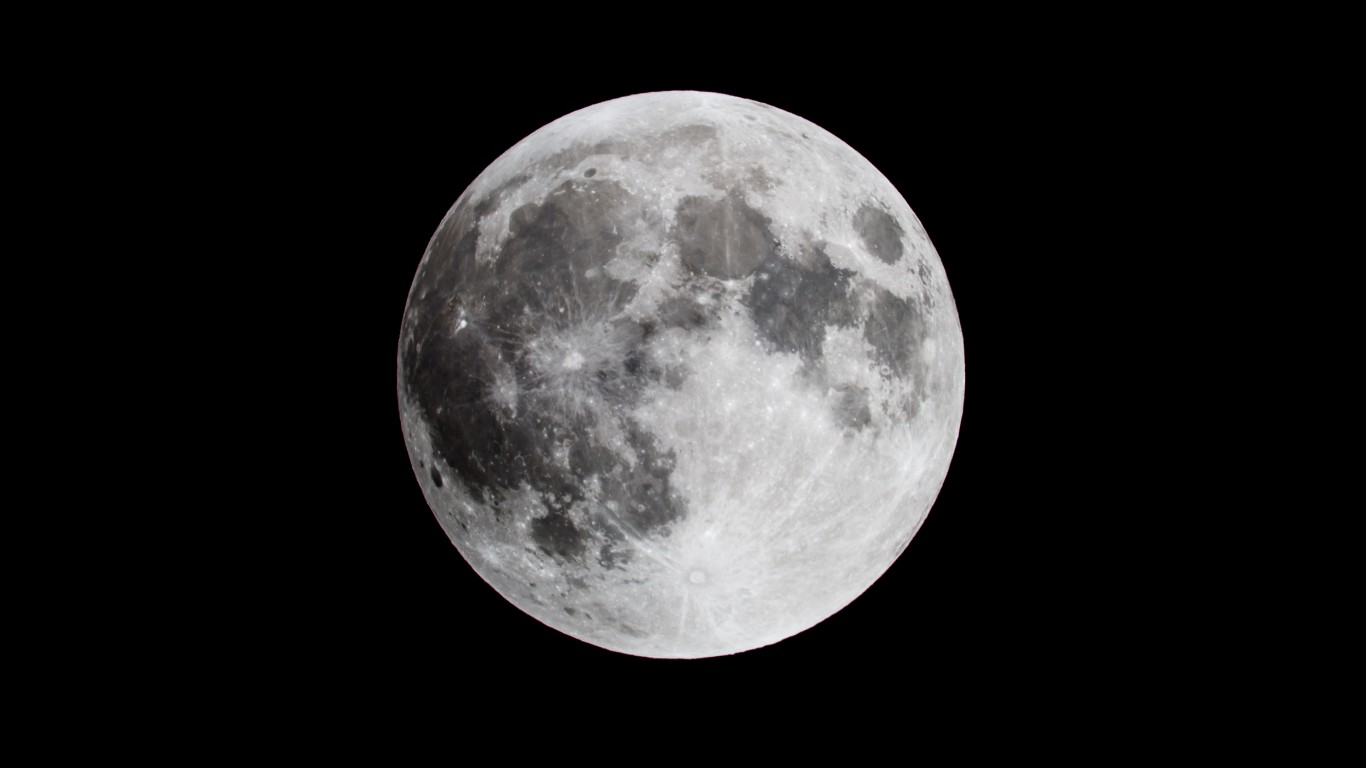
Pennsylvania
Many superstitions center around the moon. The Pennsylvania Dutch believe that if you sweep the house when the moon is obscured you won’t have moths or spiders.
Rhode Island
If you drink from the fountain outside the Providence Athenaeum — a member-supported library — you are guaranteed to return there. And if you return to the Athenaeum, look out for Edgar Allan Poe’s ghost. You may find him under the mysteries section.

South Carolina
If you’re a bridesmaid in exactly three weddings in South Carolina, you’ll never be married.

South Dakota
Wild Bill Hickock was shot dead while playing poker and had two pairs of aces and eights. This has been known as the “Dead Man’s Hand” ever since.

Tennessee
Coal mining plays a part in the culture of eastern Tennessee as well as its superstitions. Carrying a piece of coal in your right pocket will fight a curse. When the coal has dissolved to crumbs, the curse has been lifted.
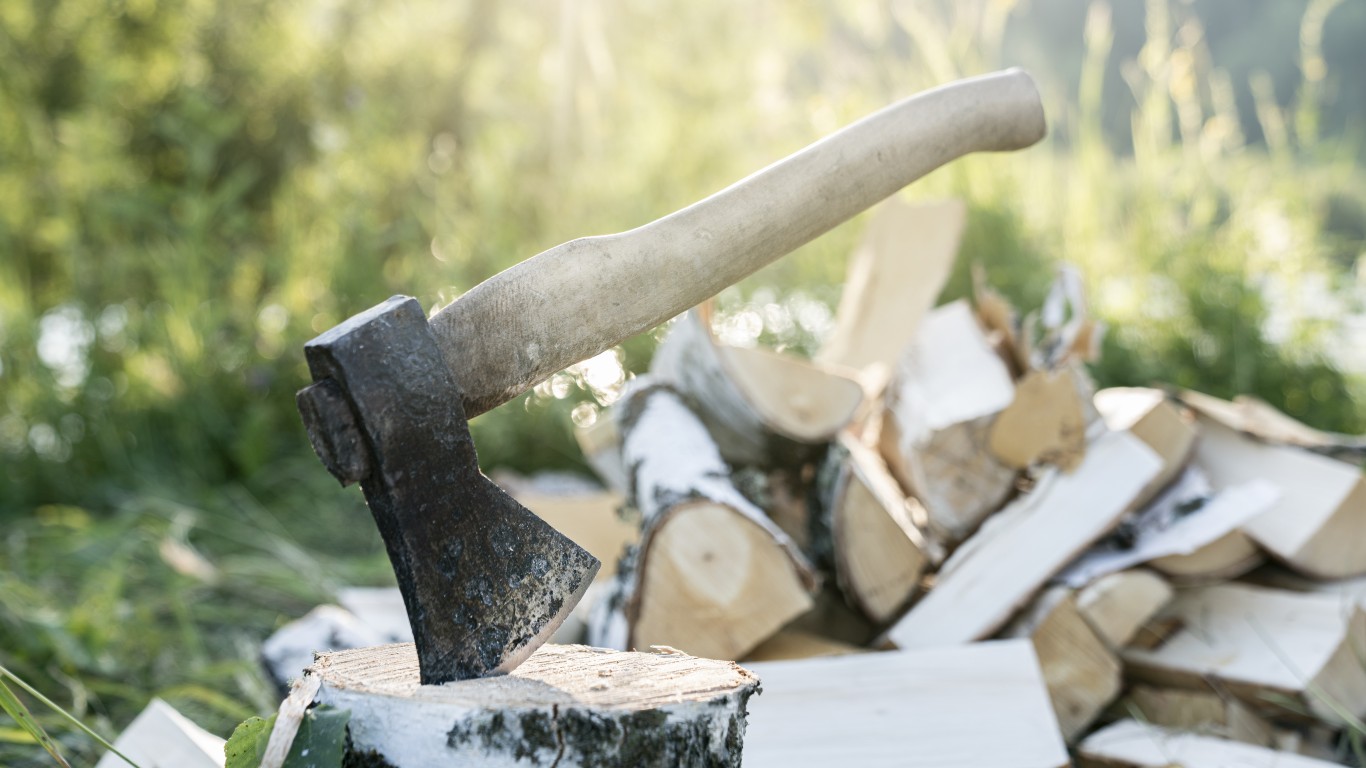
Texas
Some Texans believe that sticking an axe in the ground will stop a thunderstorm. According to folklore, doing this splits a cloud and prevents a cloud burst.
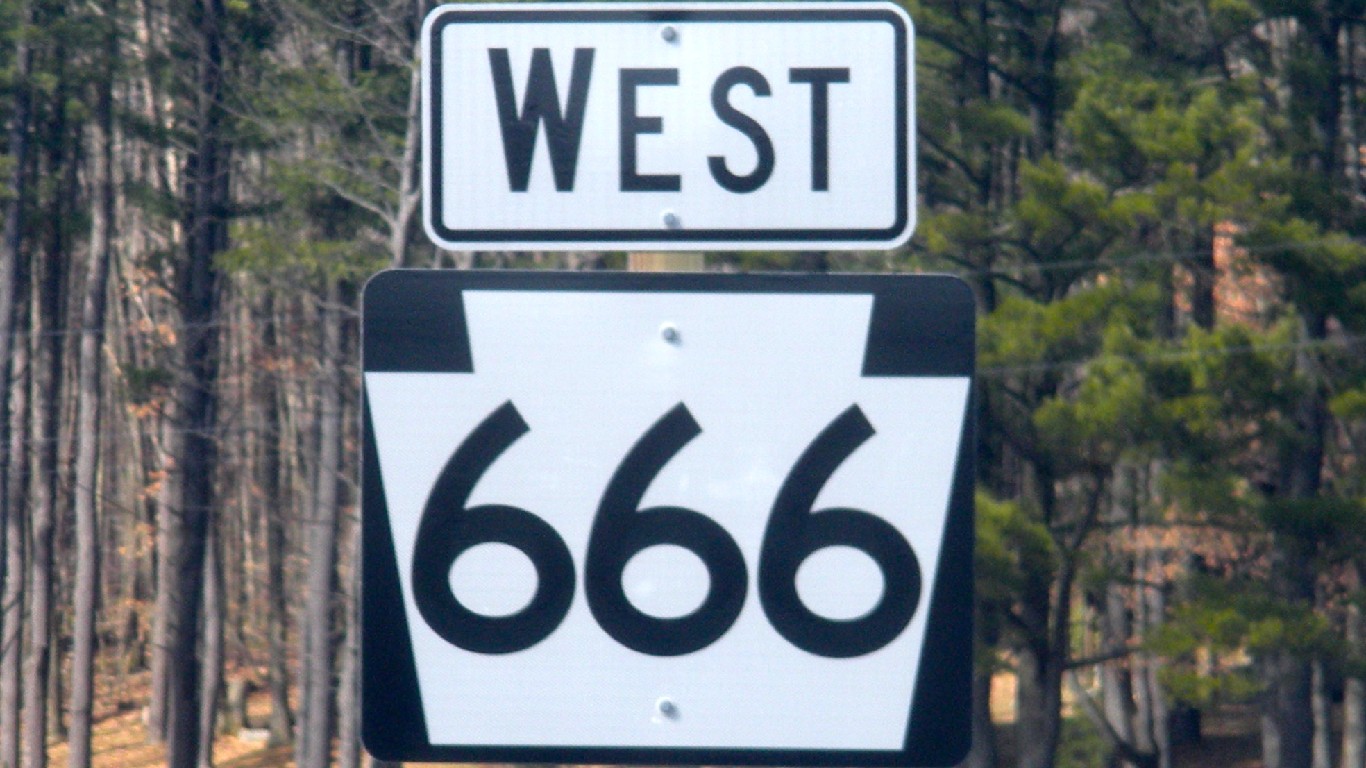
Utah
Route 666 is known as The Devil’s or Satan’s Highway. The number 666 is the number of “the Beast” and signifies the Antichrist, as noted in the Book of Revelations. Among the stories associated with the highway are maniacal truckers, roving packs of wild dogs, UFOs, and Native American tales of evil medicine men appearing and disappearing in the backseats of vehicles.
Vermont
Vermont‘s “witch windows” were built on an angle to prevent witches from flying in because a witch cannot fly through a crooked window. Other people believe practical New Englanders angled the windows to bring in more daylight and fresh air into a second-story room.

Virginia
In the Shenandoah Valley, people count the number of foggy mornings in August and that is how many winter snows there will be.
[in-text-ad-2]

Washington
There have been superstitions associated with burials throughout history and around the world. In Washington, Native Americans believe someone who handles a corpse should eat salmon or sturgeon for 30 days after burial to assure prosperity.

West Virginia
The Appalachian region is rich in folklore, legends, and superstitions, many of them from German and Scottish cultures. One superstition is that after someone dies his or her pictures begin to fade.

Wisconsin
Herring was likely brought to Wisconsin by immigrants from Scandinavia. Eating the fish at the stroke of midnight on New Year’s is supposed to bring good luck.
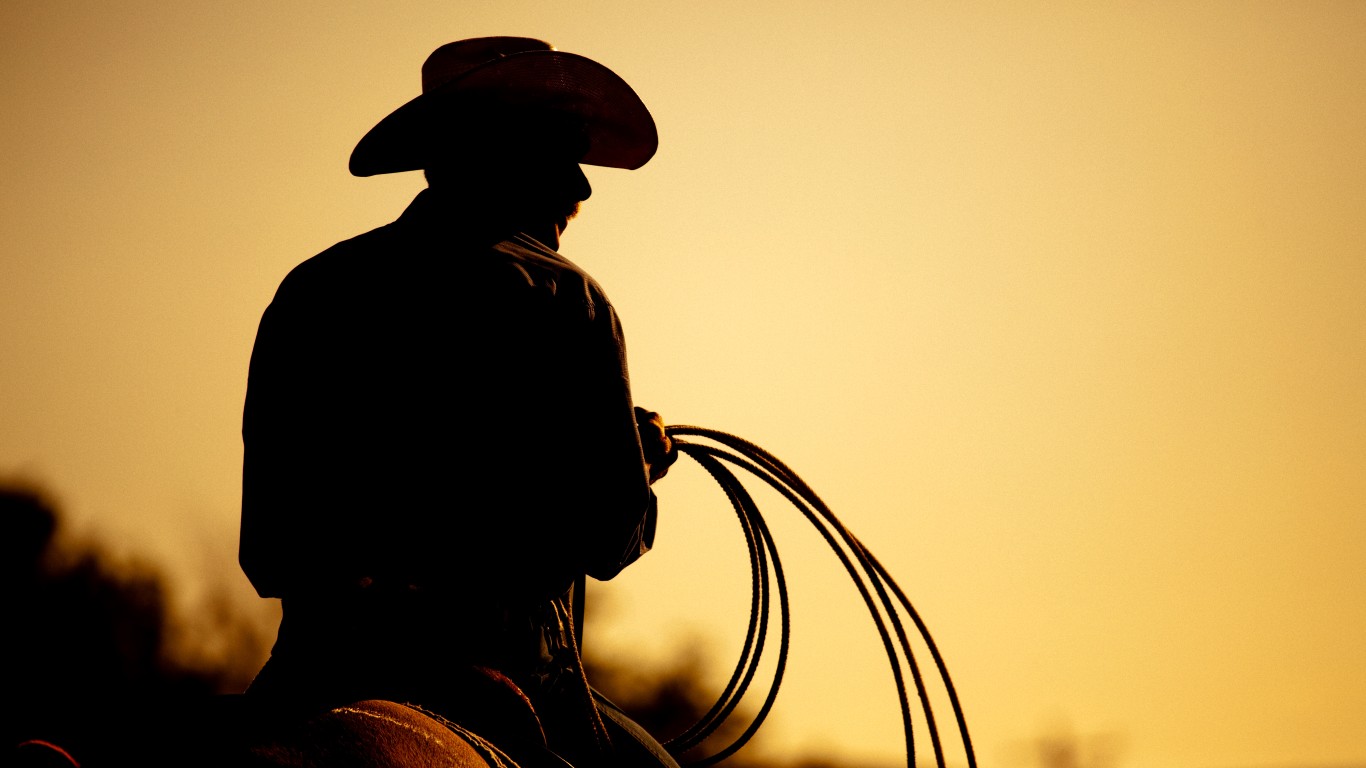
Wyoming
In cowboy superstition, giving someone a knife will sever the relationship between gift-giver and recipient. To offset the misfortune, the receiver should pay for the knife with at least a penny. And that’s a bargain whether you’re superstitious or not.
Detailed Findings
Many of the superstitions that are part of everyday life — breaking a mirror causes seven years of bad luck; don’t walk under a ladder; avoiding a black cat — have no particular geographic connection. Superstitions associated with a particular state or region often reflect the area’s cultural heritage and the peoples who settled there and live there today. The origin of these superstitions vary and include stories from Native Americans; products of local sports legends; or the result of a geographical anomaly. Some have their origins in a tragedy that resonates, and others are customs pertaining to holidays such as New Year’s Day.
Not all superstitions are bound by state borders. This is particularly true in regions such as the Appalachian region, which spans areas in Pennsylvania, Tennessee, West Virginia, and Kentucky, as well as the Ozarks, which includes areas in Arkansas, Missouri, Oklahoma, and Kansas.
Superstitions in a particular part of the United States might have counterparts in a completely different region. In Colorado, if you kill a toad, your cow will produce bloody milk. In North Carolina, the superstition is if you kill a frog, your cow’s milk will be bloody.
Methodology
To identify every state’s local superstitions, 24/7 Tempo reviewed sources that included academic journals on folklore obtained from the digital library JSTOR as well as stories reported by local media. A superstition is an irrational or mythological belief that is held by a community over time. To be considered for the list, a superstition had to be associated with a particular state or region. In compiling this list, we attempted to inform the reader of the richness of the traditions, folklore, and customs of the diverse ethnic groups in the United States.
Are you ahead, or behind on retirement? For families with more than $500,000 saved for retirement, finding a financial advisor who puts your interest first can be the difference, and today it’s easier than ever. SmartAsset’s free tool matches you with up to three fiduciary financial advisors who serve your area in minutes. Each advisor has been carefully vetted and must act in your best interests. Start your search now.
If you’ve saved and built a substantial nest egg for you and your family, don’t delay; get started right here and help your retirement dreams become a retirement reality.
Thank you for reading! Have some feedback for us?
Contact the 24/7 Wall St. editorial team.